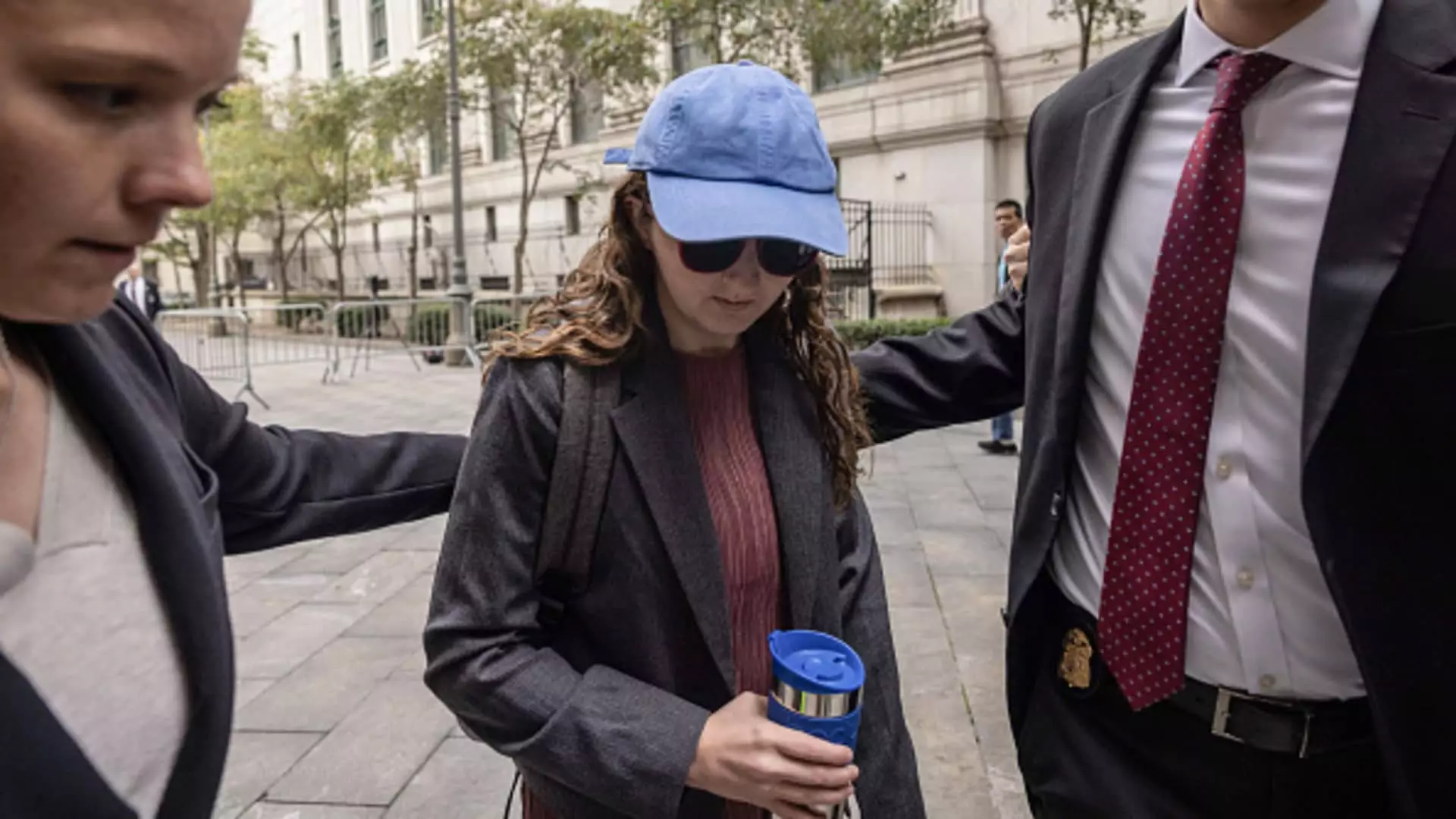The downfall of FTX, once a titan in the cryptocurrency exchange market valued at a staggering $32 billion, resonates throughout the financial landscape of 2023. At the center of this financial implosion is Caroline Ellison, who played a pivotal role in the accompanying conspiracies and fraudulent activities that led to its demise. Her recent sentencing in New York federal court not only underscores the severity of the offenses committed but also raises pertinent questions about accountability and justice within the high-stakes world of cryptocurrency.
On a recent Tuesday, Ellison was handed a two-year prison sentence, alongside an order to forfeit $11 billion, a sum that starkly contrasts with the lesser alternative proposed by the federal Probation Department, which recommended a penalty of three years’ supervised release without incarceration. This decision by Judge Lewis Kaplan, while harsher than federal suggestions, reflects the judiciary’s determination to emphasize the gravity of financial crimes, especially in an environment where regulatory frameworks are still evolving.
This sentence is a significant deviation from the norm where defendants cooperating with prosecutors, especially in white-collar crimes, often receive lenient treatment. Ellison’s plea deal, reached in December 2022 following FTX’s bankruptcy, illustrates her willingness to assist authorities in providing insights into the complicated web of deceit that defined her and Bankman-Fried’s operations. At 29, she now faces the consequences of choices that captivated the attention of the financial world.
Sam Bankman-Fried, also ensnared in the FTX debacle, opted to fight the charges leveled against him. Unlike Ellison, who acknowledged her role in the misconduct, Bankman-Fried was convicted on all counts and sentenced to an imposing 25 years behind bars, coupled with a similar forfeiture amount. The juxtaposition of their journeys through the legal system offers insight into the nuances of criminal prosecution. While Ellison’s cooperation yielded a lighter sentence, Bankman-Fried’s combative approach resulted in harsher penalties.
The contrasting outcomes highlight the legal ramifications of strategic choices in high-profile cases. Ellison’s recent court filing indicating finalized settlements with prosecutors suggests a commitment to resolving the legal aftermath surrounding FTX’s collapse—a move likely intended to stabilize her future post-incarceration.
Implications for Future Financial Regulations
The recent developments in the FTX case signal a potential recalibration of regulations in the cryptocurrency sphere. With government officials increasingly scrutinizing the practices of digital currencies and their exchanges, the fallout from FTX could lay the groundwork for stricter compliance measures aimed at preventing similar incidents. Ellison’s case serves as both a cautionary tale and a hopeful narrative for regulators striving to protect investors in the often-volatile crypto market.
As financial institutions analyze the ramifications of high-stakes fraud cases such as Ellison’s, it becomes imperative that a balance is struck between fostering innovation and safeguarding against unscrupulous practices. Ellison’s cooperation has provided the authorities with valuable information, but the broader implications extend beyond individual cases, challenging the integrity of the entire cryptocurrency ecosystem.
Caroline Ellison’s sentencing represents more than just the judicial consequences for her actions in the FTX scandal; it symbolizes a transformative moment in a turbulent sector that continues to grapple with issues of trust, accountability, and regulation. As developments unfold, the financial community must remain vigilant and responsive, learning from the lessons laid bare in this extraordinary and cautionary tale.


Leave a Reply